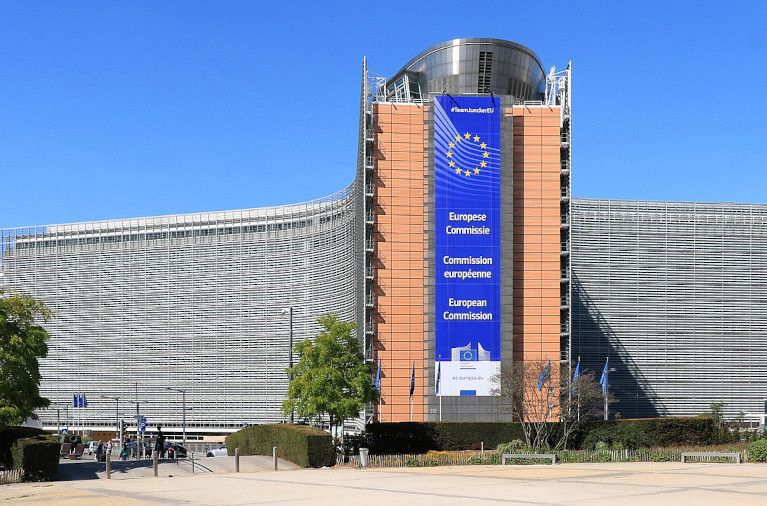In this op-ed, Dr. Jeroen Candel, associate professor of food and agricultural policy, Wageningen University, the Netherlands, points to the failures of EU institutions to deliver on the Farm to Fork strategy, despite the impacts of worsening climate and biodiversity collapse.
Massive damage to crops and the death of thousands of animals in the Greek region of Thessaly as a result of Storm Daniel. The lowest European olive harvest in a decade due to drought. The impending end for iconic food products such as Iberian ham, Savoy cheese and rice from the Camargue. These are all symptoms of the increasing effects of climate change and environmental degradation on Europe’s agricultural sector. Although these impacts have long been seen as future risks by European politicians, previous summers made clear that, in addition to the climate and energy crisis, Europe is also facing an impending food system crisis. Moreover, the increased likelihood of the occurrence of high impact ‘climate tipping points’, such as the collapse of the Atlantic Circulation system, may result in the cessation of arable farming in large parts of Europe.
All signs are on red. If Europe is to avert the worst of environmental collapse, immediate political action is needed. Given that approximately 30% of the EU’s human-induced greenhouse gas emissions originate from the food system, that agriculture is the most important driver of land use change and biodiversity loss, and that both water quantity and quality are under severe pressure from agricultural activities, even in water-rich countries such as the Netherlands, a transformation of the EU’s food system should be a key priority for EU decision-makers.
It is all the more disturbing that the European institutions have actually scaled down their food system ambitions over the past two years. Under the guise of food security arguments and the cost of living crisis, the effects of the war in Ukraine have been used to delay or dilute much-needed reforms in European agricultural and food policy. And this while the current European Commission still started its mandate promisingly: the Farm-to-Fork and Biodiversity strategies, despite having their shortcomings, played a central role in the development of the Green Deal, and set ambitious goals for restoring ecosystems, reducing pesticides, fertilizers and antibiotics, and even changing food consumption patterns, previously a major political taboo. Now that the Commission is approaching the end of its term, little of those ambitions are left.
The first bill to fall victim to a political coup was the proposal for a Sustainable Use of Pesticides Regulation. A coalition of industrial interest groups, Member States and MEPs managed to use the momentum of the Ukraine war to demand an additional impact study to the one already carried out by the Commission, despite hundreds of European scientists indicating that such a study would not lead to new insights and appealing to no longer delay stricter legislation. And of course this second impact assessment echoed the essence of what those hundreds of scientists said: “pesticide reduction goals envisaged in the SUR proposal would not threaten food security. On the contrary, they would safeguard food security in the longer term.”
And now, with European elections approaching, the bill is hanging by a thread and the EU is in danger of not respecting its agreements on pesticide reduction made during last year’s biodiversity summit in Montréal.
Before the Summer, the proposal for an ambitious nature restoration law was partially derailed. Although green politicians celebrated the close EP vote in favor of the law as a major victory, the Parliament’s adopted position is so weak it appears insufficient to halt Europe’s biodiversity crisis. The European Parliament even deleted any reference to agriculture and agricultural ecosystems, even though that’s where some of the biggest environmental challenges are concentrated.
I vividly remember personally warning a Flemish MEP about the nearing end of the potato sector in Flanders, one of the most drought-prone regions in Europe, if water retention measures were not taken quickly. The parliamentarian in question nevertheless voted against the law, arguing that he was standing up for Belgian farmers.
Thankfully the Nature Restoration Law is still alive, with the Council of Ministers having adopted a stronger position than the Parliament, including retaining the agriculture and agricultural ecosystems elements in its adopted position. So there is still much to play for.
But it’s not just the Parliament. The latest chapter in the dismantling of the Farm-to-Fork Strategy was Commission President Von der Leyen’s annual State of the Union speech. The speech did not refer to the strategy once, and it is rumoured that the Commission will shelve its plans for a revision of the Animal Welfare Act and a new Sustainable Food System Act. Von der Leyen seems to be preparing for her desired candidacy as a spitzenkandidat of the EPP, the group that has most actively opposed the Commission’s food system plans and presents itself as offering a more realistic approach to the EU’s green transition.
All that remained in the SofU was the vague promise for a Strategic Dialogue on the future of European agriculture. As if there has been a lack of input from the agricultural sector in recent decades, as evidenced by the privileged access of Copa-Cogeca to the Council of Ministers, the conflict of interest of farmers who vote in the European Parliament on legislation affecting their companies, and the close ties between some government leaders and the agricultural sector. The time for dialogue has passed, now is the time for action.
Admittedly, things have not been made very easy for Von der Leyen either. With the departure of Vice-President Timmermans from the Commission, there is no European Commissioner left who appears to be committed to transforming the food system. A striking example is that Agriculture Commissioner Wojciechowski previously openly sided with the Member States in their attack on his own Commission’s proposal for the pesticides regulation. Commissioner Kyriakides, who has the Farm to Fork Strategy in her portfolio, has also not shown any interest in the file in recent years. Commissioner Šefčovič, who took over the Farm to Fork from Timmermans, remained remarkably silent on the his food system priorities in his hearing at the EP’s Environmental Committee last week. And while some Member States such as Sweden, Finland and Belgium (Flanders) have developed national food strategies, the German Minister of Agriculture Özdemir remains a voice in the desert when it comes to leadership from the Member States.
All of the above shows that the European Commission’s initial push towards a European Common Food Policy has been hugely disappointing. Meanwhile, time is ticking. While European politics seems to be approaching pause due to the coming elections, there is no pause button for the climate and biodiversity crisis. Now is the time for the real leaders to stand up and work on a European food policy that goes beyond chatter. If they fail, we will have seen just a taste of what is to come for our food system.





